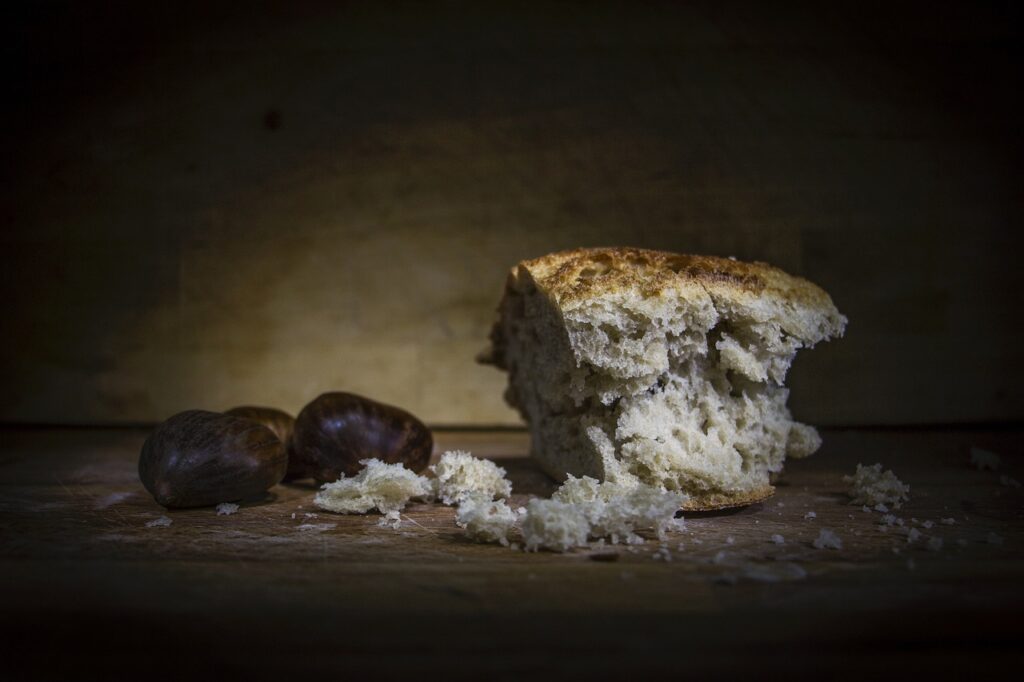
The death of St. John the Baptist means his mission as the Precursor, the one crying out in the wilderness, is finished. This news sends Jesus to a deserted place to pray and reflect on the next stage of his own mission. But his solitude is very brief, as the crowds are there to meet him with their many needs.
Jesus could have stayed in the boat and rowed back out to sea for the prayer time he needed. He could have refused to step off the boat into the vast crowd of need. But he never draws back from loving generously, fully, personally. He is moved with pity for them and spends the whole day talking with them, hearing their pleas, curing their illnesses, encouraging them.
At the end of this long day, undoubtedly fatigued, the disciples suggest that Jesus send them all away to feed themselves (probably thinking that they – and Jesus – could then get some rest!). But Jesus is not done giving; he is never done giving. And he is not done teaching either; he is never done teaching. So he uses this as a teachable moment for the people and the disciples, telling the disciples to give them something to eat.
I like to imagine the look on the faces of the disciples, the glances they gave each other and the confusion they felt when they considered how to feed thousands of people with five loaves of bread and two fish. Focused on their own incapacity and shortage, they were not yet relying fully on the Lord’s power. But they were about to learn a profound lesson: no matter how little they have, when they put it into the Lord’s hands, it becomes more than sufficient! Jesus tells them: “Bring them here to me.”
Then he takes the loaves and fish, looks up to heaven and says the blessing, breaks the bread, and gives it to the disciples. Sound familiar? The four verbs used to describe what Jesus does are the same four verbs used to describe what Jesus will do at the Last Supper, and the same four verbs used to describe what the priest does at every single Mass: he took, blessed, broke, and gave the bread. And their meager supplies became, mysteriously, more than enough to feed the thousands of people who came to him that day. In fact, there were 12 baskets of leftovers.
The same is true for us: no matter how little we have, when we put it wholly into the Lord’s hands, it becomes more than enough! And when we receive the Eucharist, we have a profound opportunity to put everything, including our whole self, into the Lord’s hands. If we give generously, we can be confident that we will lack nothing! How can we open ourselves and offer ourselves fully to the Lord the next time we receive Communion?
Daily Reading
Monday of the Nineteenth Week in Ordinary Time
Reading 1 Ez 1:2-5, 24-28c On the fifth day of the fourth month of the fifth year,that is, of King Jehoiachin’s exile,The word of the LORD came to the priest…
Saint of the Day
Saint Euplius
Saint Euplius is venerated as a martyr and saint by the Catholic Church. With Saint Agatha, he is a co-patron of Catania in Sicily.
The post Saint Euplius appeared first on uCatholic.



